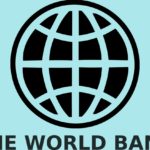ISLAMABAD: The finance ministry on Thursday said that the economy likely to grow better than forecast of World Bank.
The ministry said that the government’s extensive measures have helped the economy move progressively along the adjustment path and stabilization process and economic recovery is expected towards the end of FY2020.
“The government is focused on bringing improvement in the real sector growth through inclusive growth in agriculture, industrial and services sectors,” said a statement by the Finance Division in response to certain news reports carried in a section of the regarding downward revision of growth by the World Bank.
The government is cognizant of challenges and stringently focused on resolving them particularly, reducing inflation, creating job opportunities and achieving high growth rate.
“Keeping in view the positive developments on major economic indicators, we expect that the economy will likely to achieve better growth prospects as against the projections of the World Bank.”
The World Bank in its report ‘2020 Global Economic Prospects’ had forecasted Pakistan`s current year growth rate at 2.4 percent before touching 3 percent next fiscal year and 3.9 percent in FY2022.
The bank’s report had also mentioned that the growth had decelerated an estimated 3.3 percent in FY2018-19, reflecting a broad-based weakening in domestic demand.
In addition, the report had described that significant depreciation of the Pakistani rupee resulted in inflationary pressures, monetary policy tightening restricted access to credit, curtailing public investment to deal with large twin deficits and budget deficit rose more sharply than expected.
It may be pointed out that during FY2019, the slowdown in economy was largely attributed to various policy measures to manage the twin deficit crisis. Consequently, these measures helped to contain demand pressures and contributed to import compression.
However, the outcomes of these measures were realized on the industrial sector.
Particularly LSM sector witnessed a negative growth. At the same time, high input costs along with water shortages weakened agriculture sector’s output and hence, the drag in the commodity-producing segments spilled over to the services sector as well.
Resultantly, the real GDP growth recorded at 3.3 percent. At the start of current fiscal year, with government’s extensive measures, Pakistan’s economy is now moving progressively along the adjustment path and stabilization process; however towards the end of FY2020, economic recovery is expected. In this regard, Government is focused on bringing improvement in the real sector growth through inclusive growth in agriculture, industrial and services sectors.
For growth in agriculture sector, the target production of wheat is 27 million tons given by FCA in last meeting held in October. In addition to uplift agriculture sector “National Agriculture Emergency Programme” in coordination with all provinces has been introduced and approved 13 mega projects at the cost of Rs 287 billion.
Agriculture credit disbursement target for CFY20 has been set at Rs.1,350 billion. Agriculture credit disbursement increased by 20 percent to Rs 482 billion during Jul-Nov, FY2020 against Rs.402 billion last year. To boost industrial sector, the government is providing a series of subsidies and incentives to industrial sector.
These include subsidies to industry for electricity and gas, export development package and continue to provide Long-Term Trade Financing (LTFF) and Export-Refinancing Scheme (ERS) at subsidized rate. Similarly, PSDP release process is simplified and up to 3rd January, 2020 Rs.301.4 billion (Rs.225.4 billion) released to encourage construction related industries especially cement & steel.
In addition, Cement dispatches growth of 6.55 percent (24.8 million) during July-Dec, FY2020 against 23.2 million in the last year. This development would likely stimulate the growth in LSM in coming months. On fiscal side, to control expenditures, government is following austerity measures with complete restriction on supplementary grants.
For export promotion several initiatives have been announced such as support duty structure on raw materials and intermediate goods, improve mechanism for tax refunds, provide electricity and gas at competitive cost, and make Pakistan part of the global value chain.
Government’s various measures to stabilize the economy has already started to reap benefits in the form of sustained adjustment in current account deficit (CAD) and continued fiscal prudence.
A brief review indicates that CAD reduced by 72.9 percent during July-November FY2020, Fiscal deficit contained at 1.6 percent of GDP (Rs 686 billion) during Jul-Nov FY2020 ,Primary balance posted surplus of Rs 117 billion during Jul-Nov, FY2020 (0.3 percent of GDP), significant rise in FBR tax revenues to Rs.2085.2 billion (16.4 percent) during July-December, FY2020, improved ranking in ease of doing business, ranked among the world’s top 10 best business climate improver and ‘Stable’’ credit outlook to B3 from ‘Negative’ by Moody’s is an affirmation of Government’s success in stabilizing the economy and laying a foundation for robust growth.


